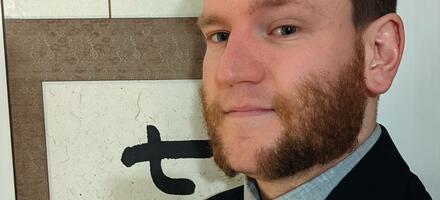
The art of asking the right question
Progress indicator

In the search for answers, we don’t often stop to think whether we are asking the right questions, but for anyone working in auditing, this key skill should not be underestimated.
In Douglas Adams' The Hitchhiker’s Guide to the Galaxy, 'hyper-intelligent, pan-dimensional beings' build a supercomputer called Deep Thought to find out the answer to "life, the universe, and everything". They are disappointed when the computer tells them it is '42', and realise they didn’t actually know what the question was.
Keep this in mind if you work in auditing, where questioning plays a crucial role. Like the pan-dimensional beings, how often do we stop to think about the language we use, the timing of the question, and the complexity of what we are asking?
By carefully considering the questions we use, we can ensure we get the right information and gather it in the most efficient manner.
-
Open or closed?
"Did you have a nice holiday?" is a closed question, because it needs only a yes or no answer. "How was your holiday?" is an open question, because it gives the respondent a choice in how to answer.
Open questions provide more information, but closed questions have their place when you simply need confirmation – for example, "Is this your first day back?".
Open questions can sometimes yield too much information, especially from verbose respondents, which means more time spent picking out the details that you really want.
"We must let go of our fear of looking foolish."
It can be more efficient to use a semi-open question, which invites a detailed response, but not too much of it. "What was the best thing you ate?" rather than "What was the food like?", for instance.
Purely open questions can overwhelm a respondent, who may not know where to start to explain a huge aspect of their job. You'll put them at ease (and therefore get a better answer) by narrowing down what they need to think about: "What are the three most problematic issues…?"; "What is the best example of…?".
2. Embrace your inner child
We must let go of our fear of looking foolish because we have asked a question that is simplistic or obvious. Young children finding out about the world have no qualms about how it looks not to know; they just ask – and if they don't understand, they ask "why", "why", and "why" again.
By asking that 'absurd' question, we force those around us to consider the issue without the preconceptions they use every day. Thinking without boundaries can unlock answers to problems that have been stubbornly hard to solve.
3. Be curious, not practical
There is a time for nitty-gritty and detail, and there is a time for blue sky-thinking – being curious just for the sake of it.
You might ask, "why is there a traffic jam on this road on Wednesday evening and not on Thursday?" The answer might not be directly useful, but it could tell you something you can feed into the planning of a new housing project, for instance. Try to make this a habit – the usefulness will often come later.
4. Presume at your peril
We all make presumptions – we have to, otherwise things would take a lot longer to get done.
For the auditor, there is a clear way to navigate the perils of presumption: just ask. A simple closed question can dispel any misunderstandings and save a lot of frustration down the line. If you feel silly asking what you think is an obvious question, see point 2.
5. Timing is everything
Sometimes, there is no right or wrong question, just a right or wrong time to ask it.
At the start of a conversation, make your open questions broad, so you don't miss anything, and challenge presumptions so you don't go down the wrong path of enquiry.
As the conversation goes on, target things that you found useful in the opening stage of the conversation with semi-open questions, and – towards the end – clear up with closed-question clarifications.
Imagine this approach as a funnel: capturing a broad range of information at the beginning and narrowing down to a fine point at the end.
6. The sound of silence
A wise person once said: "We have two ears and one mouth and they should be used in that proportion."
Give the respondent your undivided attention, and really listen to their answer – not only what they are saying, but how they are saying it. Nuances and body language can indicate what to follow up on – for example, "you sounded a little uncertain when you talked about the production process; can we dig a little deeper there?"
You may have the urge to fill an awkward silence with chatter, but resist. Your respondent might just be thinking, and an interjection could interrupt their train of thought. Staying silent while smiling and nodding your head is also a great way to subtly encourage someone to divulge more information.
Sometimes, silence is the best form of questioning.
Find a course
There are a number of CQI and IRCA certified training courses on offer for auditors. Find the right one for you, today.
Quality World

Get the latest news, interviews and features on quality in our industry leading magazine.



